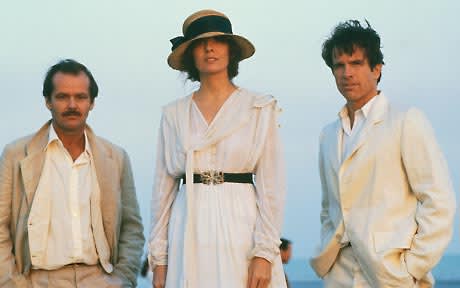Obviously, Reds is a film that wouldnt get made today - not at the budget (its $31 million would be about $90 in todays filmmaking dollars), and certainly not with this subject matter, which Warren Beatty, in his first-ever interview about the film, describes as "a three-and-a-half-hour movie about a communist who dies. But Reds - now available on DVD for the first time - is more about love, and about Beatty himself, than it is about John Reed, an American communist who participated in the 1917 Bolshevik Revolution and made it famous in the West with his book Ten Days That Shook the World. Beatty plays Reed in the film, but he also does everything else too: he co-wrote the screenplay, he directed, he produced it - he even calculatedly made a hit movie for Paramount (Heaven Can Wait) in order to buy enough goodwill to make Reds. And though it does get hip deep in the politics of its time - right down to the bickering amongst the early American communist movement - and provides parallels to American political habits as well, Reds is at its heart the story of conflicted ideals and idealists. Beatty plays up a historical perspective by including real-life "witnesses whose stories are interspersed throughout; he undercuts this documentarian move by not identifying them onscreen (they include real-life writers like Henry Miller and Rebecca West). He creates romantic tension between Reed, Bryant and playwright Eugene ONeill (Jack Nicholson, in a fabulous supporting role) but argues that Reeds romanticism extended only to the workers. Its a complex, epic film, beautifully photographed by Vittorio Storaro; the cinematographer won one of its three Oscars (of 12 nominations). Maureen Stapleton, as communist pioneer Emma Goldman and Beatty himself for directing won the other two. Over an hour of feature materials feature mostly Beatty and Nicholson, whose long-standing friendship is clear in their banter and fond recollections. Reds is a throwback picture that recalls a time of directing giants like David Lean harnessing massive crowds in larger than life settings; as with the left, they just dont make them like this any more.
(Paramount Pictures)Reds
Warren Beatty

BY James KeastPublished Feb 19, 2007